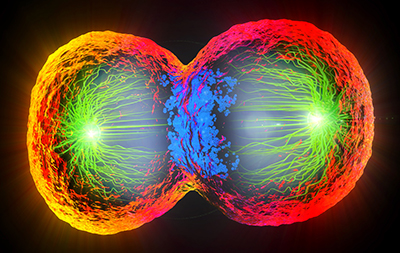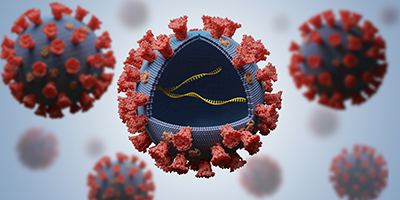Stephen Doster
-

Scott Hiebert to serve as acting chair for the National Cancer Advisory Board
By Lorena Infante Lara Scott Hiebert, Hortense B. Ingram Chair in Cancer Research and professor of biochemistry, will serve as acting chair for the National Cancer Advisory Board. Originally appointed by President Barack Obama… Read MoreSep. 28, 2020
-

Cohen Fund bolsters Siciliano’s memory research
Sep. 24, 2020, 9:19 AM by Bill Snyder Cody Siciliano, PhD, assistant professor of Pharmacology in the Vanderbilt University School of Medicine, has been selected to receive a one-year, $100,000 research award from the Stanley Cohen Innovation Fund to support his studies of the neural substrates of… Read MoreSep. 24, 2020
-

Chuck Sanders named Protein Society President
Dr. Charles R. Sanders is Professor of Biochemistry, holder of the Aileen M. Lange & Annie Mary Lyle Chair in Cardiovascular Research, and Associate Dean for Research in the Vanderbilt University School of Medicine Basic Sciences. Dr. Sanders is interested in determining the molecular biophysical mechanisms by which… Read MoreSep. 18, 2020
-

Probing pathogen antibiotic resistance
Sep. 17, 2020, 9:00 AM by Leigh MacMillan Acinetobacter baumannii — a leading cause of ventilator-associated pneumonia — is becoming more prevalent and resistant to antibiotics. The outer membrane of A. baumannii and other Gram-negative bacteria provides a barrier against host and antibiotic stresses and is maintained by the Mla system, which has been proposed as a target for antimicrobial drug development. … Read MoreSep. 17, 2020
-

International collaboration with Vanderbilt scientists sheds light on rare exocyst mutations that cause severe developmental disabilities in children
by Marissa Shapiro Sep. 14, 2020, 9:00 AM In collaboration with Australian and Italian geneticists, Vanderbilt University researchers Mukhtar Ahmed, research assistant professor of cell and developmental biology, graduate student Christian de Caestecker and Ian Macara, professor and chair of the Department… Read MoreSep. 16, 2020
-

Laying groundwork for Tennessee’s first federally funded Alzheimer’s Disease Research Center
Sep. 10, 2020, 8:38 AM by Paul Govern Angela Jefferson, PhD, and colleagues are establishing an Alzheimer’s Disease Research Center at VUMC. (photo by Avery Haller) Angela Jefferson, PhD, professor of Neurology and director of the Vanderbilt Memory and Alzheimer’s Center, has been awarded a $3.7… Read MoreSep. 15, 2020
-

Laying groundwork for Tennessee’s first federally funded Alzheimer’s Disease Research Center
Sep. 10, 2020, 8:38 AM by Paul Govern Angela Jefferson, PhD, and colleagues are establishing an Alzheimer’s Disease Research Center at VUMC. (photo by Avery Haller) Angela Jefferson, PhD, professor of Neurology and director of the Vanderbilt Memory and Alzheimer’s Center, has been awarded a $3.7… Read MoreSep. 15, 2020
-

Sin3a regulates pancreatic β-cells fitness and function
By Sohini Roy People with type 1 diabetes generate little to no insulin, which promotes the absorption of glucose from the blood. The transcriptional coregulator Swi-independent 3 — or Sin3 — switches on and off the genes that drive crucial biological processes during prenatal development, including cellular differentiation, maturation, survival, metabolism,… Read MoreSep. 14, 2020
-

Myosin motors regulate cell shape during division
By Natalya Ortolano Myosin motors and long actin filaments accumulate at the center of dividing cells to constrict the membrane. When a bouncy ball deforms under the weight of your body, its rubber membrane stretches and contracts. Likewise, the membrane of a cell doubling itself prior to division must accommodate… Read MoreSep. 14, 2020
-

VIR-CLASP reveals new insights into cellular mechanisms of viral immune response
By Brad Davidson VIR-CLASP has the potential to find new therapeutic targets during infection by a wide variety of RNA viruses. RNA viruses invade cells and co-opt cellular machinery to replicate and translate their genomic material. To stave off infection until immune cells arrive, host cells rely on “intrinsic immunity… Read MoreSep. 10, 2020